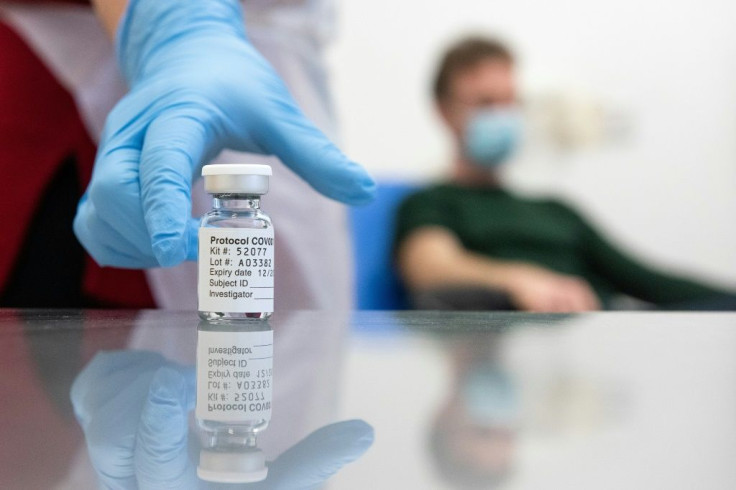COVID-19 Vaccination: Non-Frontline Workers Mistakenly Vaccinated At Stanford Medicine Due To False Information
KEY POINTS
- Stanford Medicine reportedly vaccinated an unknown number of non-frontline workers
- The mistake was due to false information that circulated online
- An email that was passed around claimed that "non-clinical" staff could get the vaccine
Non-frontline workers were accidentally vaccinated at Stanford Medicine last weekend after erroneous information had circulated in emails and on social media.
According to the Centers For Disease Control and Pevention's COVID-19 vaccination recommendations, frontline health workers and people living in long-term care facilities should be prioritized in the early phases of COVID-19 vaccinations due to the limited amount of vaccines. However, there were some "non-clinical and non-frontline staff and researchers" who got the vaccine this past weekend, The Stanford Daily reported on Tuesday.
As the publication explained, the facility was offering COVID-19 vaccinations for clinical staff last weekend but information spread through email that Stanford Medicine had an "excess" of vaccines and that non-clinical people could also get vaccinated.
"We were just notified through word of mouth that the Pfizer COVID19 vaccine is available for non-clinical staff, apparently they had an excess of it," the email obtained by the outlet read. "You need to enter through the atrium of the New Stanford Hospital. They're open until 11pm tonight and open at 7am tomorrow. No special authorization was needed."
Later emails were forwarded along with an added note that "students, postdocs and faculty and staff" could get vaccinated. Eventually, the false information also spread through social media, the outlet reported.
Another problem was that the vaccine distribution sites reportedly only checked for the Stanford Medicine Badge but not for the individuals' eligibility to get vaccinated, a problem that was reportedly remedied later on Sunday.
According to The Stanford Daily, it's not clear exactly how many non-clinical people got vaccinated because of the incorrect information. Hospital officials later clarified in an email that vaccinations were not for non-clinical staff.
"Currently, Stanford Medicine is administering vaccines to patient-facing health care workers, and we want to reiterate that vaccinations are by invitation-only," hospital officials said in the email as per the outlet.
Stanford Health Care spokesperson Julie Greicius also expressed Stanford Medicine's "disappointment" about the false information in a statement to the outlet.

With the vaccines now rolling out across the country, albeit slowly because of the limited doses available, there have been fumbles with the vaccine distribution. For instance, Stanford Medicine itself faced issues only recently for not prioritizing front-line workers for the vaccines, contrary to the CDC's vaccination recommendations.
Just this week, reports also circulated about a 33-year-old California woman who received the COVID-19 vaccine through her connections at Redlands Community Hospital, which had extra doses of the vaccine.
As mentioned, the CDC recommendations indicated that frontline healthcare workers and those living in care facilities should be prioritized in Phase 1a of the vaccination roll-out because they are the most vulnerable to COVID-19. In Phase 1b, people who are 75 years old and above as well as frontline essential workers like firefighters and police officers will be prioritized. They will be followed by the 65-74 age group, those between the ages 16 and 64 with medical conditions and other essential workers in Phase 1c.
And although some states such as Florida and Texas have chosen to deviate from the recommendations and instead prioritized the 65-74 age group in Phase 1c over the front-line essential workers in Phase 1b, the changes they made were still meant to protect a group that is also particularly vulnerable to COVID-19.
© Copyright IBTimes 2024. All rights reserved.






















